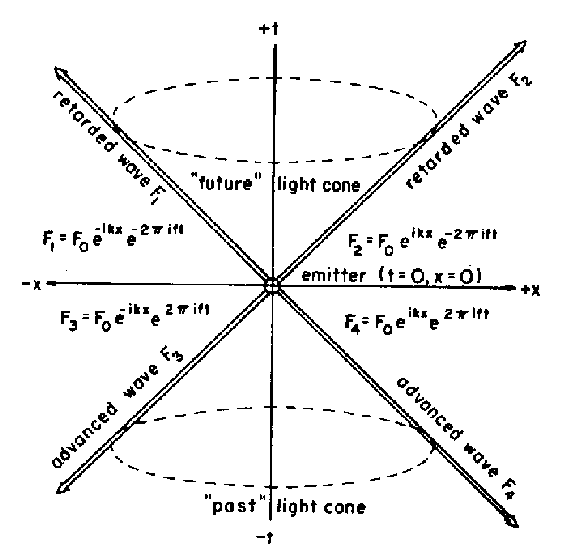C
captdude
Guest
The following link is listed above a short segment of the article that covers this subject.
http://chapmannews.wordpress.com/2010/03/18/chapman-professor-lands-discover-cover-story/
A series of quantum experiments seems to actually confirm the notion that the future can influence results that happened before those measurements were even made. (Cue spooky music here.) Aharonov and his group made extraordinary theoretical predictions about the nature of quantum reality, sort of like the Cheshire cat story in Alice in Wonderland: “Well! I’ve often seen a cat without a grin,” thought Alice; “but a grin without a cat! It’s the most curious thing I ever saw in all my life!” The novel effects they predicted were verified in many independent experiments (about 15 other laboratories around the world have done or are doing these cutting- edge experiments). Recently they have found their way to the covers of other popular magazines such as Scientific American (Asian edition) and New Scientist (“They said it couldn’t be done – but now we can see inside the quantum world”). Even The Wall Street Journal and The Economist covered it.
Aharonov was — as Einstein had been — puzzled by the fact that two identical radioactive atoms can behave completely differently, decaying, for instance, at different intervals. This indeterminism led Einstein to famously grumble that “God doesn’t play dice with the universe.” Aharonov, says Tollaksen, turned the question around. “Yakir asked ‘What does God gain by playing dice?’ and speculated that nature gains something very beautiful and exciting by playing dice – namely, “if a particle’s past doesn’t contain enough information to determine its fate, then maybe its future does.”
http://chapmannews.wordpress.com/2010/03/18/chapman-professor-lands-discover-cover-story/
A series of quantum experiments seems to actually confirm the notion that the future can influence results that happened before those measurements were even made. (Cue spooky music here.) Aharonov and his group made extraordinary theoretical predictions about the nature of quantum reality, sort of like the Cheshire cat story in Alice in Wonderland: “Well! I’ve often seen a cat without a grin,” thought Alice; “but a grin without a cat! It’s the most curious thing I ever saw in all my life!” The novel effects they predicted were verified in many independent experiments (about 15 other laboratories around the world have done or are doing these cutting- edge experiments). Recently they have found their way to the covers of other popular magazines such as Scientific American (Asian edition) and New Scientist (“They said it couldn’t be done – but now we can see inside the quantum world”). Even The Wall Street Journal and The Economist covered it.
Aharonov was — as Einstein had been — puzzled by the fact that two identical radioactive atoms can behave completely differently, decaying, for instance, at different intervals. This indeterminism led Einstein to famously grumble that “God doesn’t play dice with the universe.” Aharonov, says Tollaksen, turned the question around. “Yakir asked ‘What does God gain by playing dice?’ and speculated that nature gains something very beautiful and exciting by playing dice – namely, “if a particle’s past doesn’t contain enough information to determine its fate, then maybe its future does.”



